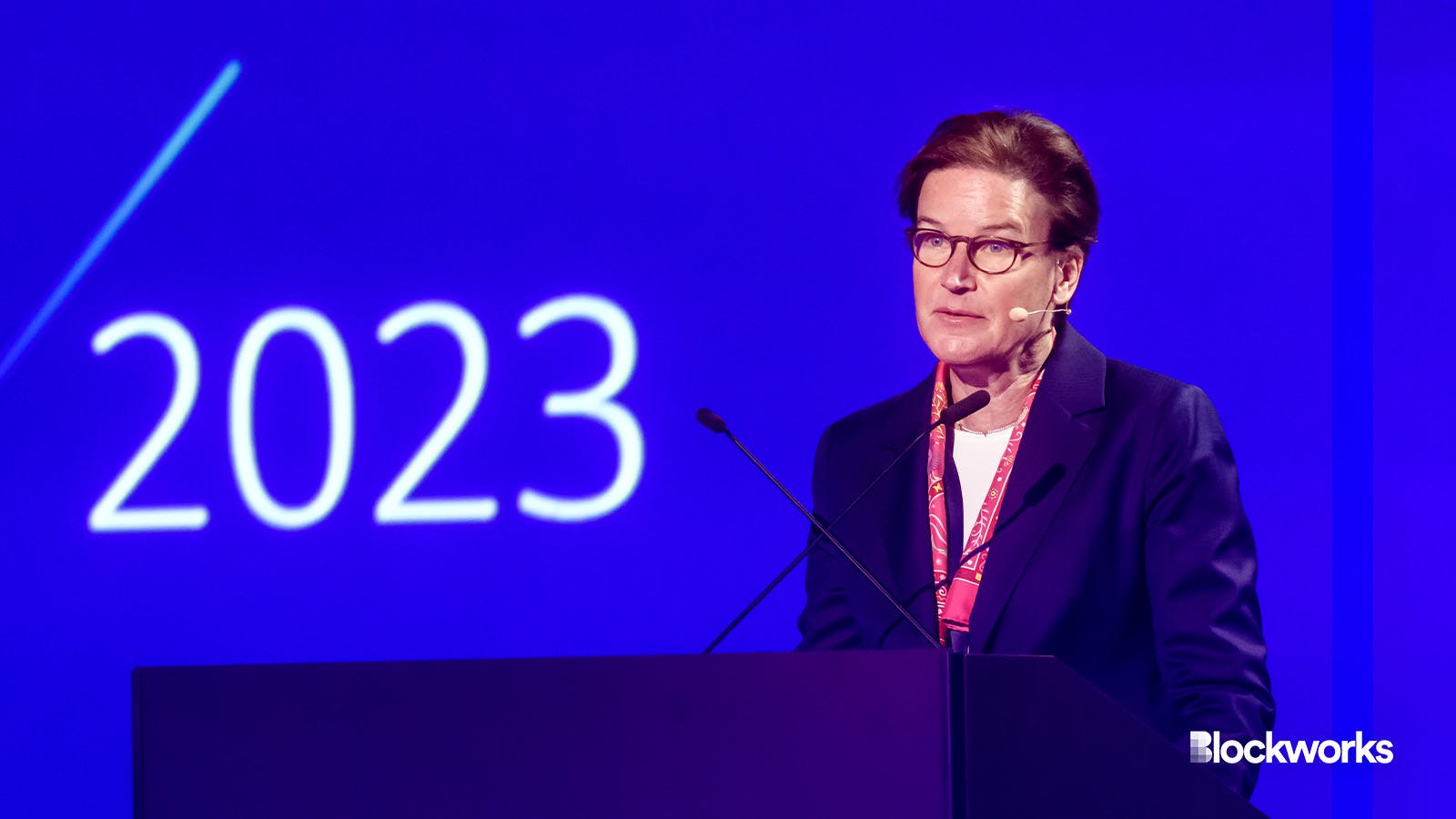European securities regulator seeks limits on non-EU crypto firms
The European Securities and Markets Authority wants to protect EU crypto firms and customers with the proposed guidelines

European Securities and Markets Authority Chair Verena Ross | Gints Ivuskans/Shutterstock modified by Blockworks
The European Securities and Markets Authority drafted guidelines prioritizing crypto firms in the European Union over outside firms.
The consultation paper, published Monday, seeks comments on the proposed guidelines that aim to offer clarity under the Markets in Crypto Asset (MiCA) rules passed last year.
“In order to make sure that clients of [crypto asset service providers] benefit from full rights and protections afforded to them under MiCA and that EU CASPs are not put at a competitive disadvantage compared to third-country firms vis-à-vis EU clients,” the paper said.
“It is important to actively protect EU-based investors and MiCA-compliant CASPs from undue incursions by non-EU and non-MiCA compliant entities.”
Firms outside of the EU would be banned from solicitation. Under the guidelines, solicitation would include ads, sponsorship deals and even influencer or celebrity solicitation.
Read more: MiCA isn’t a safety net, EU securities chief warns
It also clarified that a “broad interpretation” should be given to the “person soliciting. It may be the third-country firm or any entity or person on its behalf. The relationship between the third country firm and the person soliciting on its behalf” does not, however, need to be contractual.
“There is only one exemption, if the client at its own, exclusive initiative contacted the firm and requested the service, the third-country firm may provide it,” the paper continued.
Also on Monday, ESMA released another consultation paper. The second paper focused on crypto as a financial instrument.
“Where crypto assets do not fall within the scope of other EU legal frameworks applicable to financial instruments, such crypto assets are likely but not automatically subject to the MiCA framework,” the second paper said.
Read more: EU comes to provisional agreement to expand AML to crypto
However, MiCA doesn’t cover all “crypto assets,” with ESMA clarifying that non-fungible tokens (NFTs) “are outside the scope” of the regulatory framework.
ESMA will accept public consultation on both papers until the end of April. It has until late December to issue guidelines according to MiCA.
ESMA told crypto firms last May to register ahead of MiCA’s rollout. The securities authority, alongside the European Banking Authority, are set to oversee compliance with the regulation.
Get the news in your inbox. Explore Blockworks newsletters:
- The Breakdown: Decoding crypto and the markets. Daily.
- 0xResearch: Alpha in your inbox. Think like an analyst.






